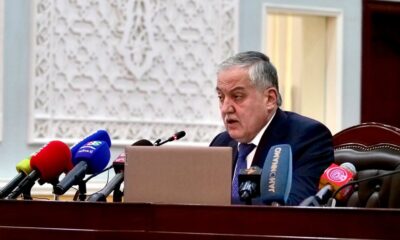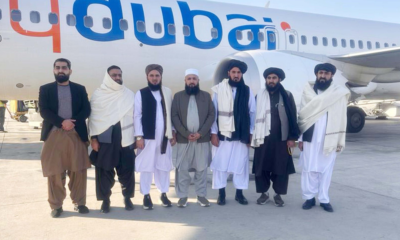Latest News
Khalilzad urges diplomacy to stave off ‘economic and state collapse’
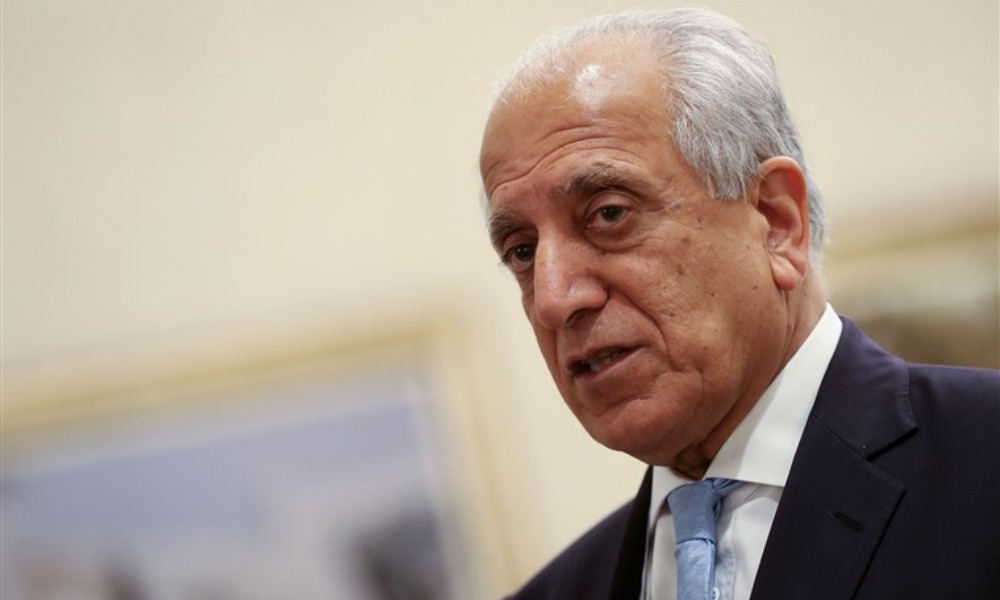
Former special envoy for Afghanistan Zalmay Khalilzad has warned the situation in Afghanistan is so bad that if the economy collapses, the state will collapse.
In an interview with TRT World, broadcast this week, Khalilzad said should this happen, the Afghan people would face huge suffering and “millions might leave”.
Speaking to TRT World, on the sidelines of last week’s Middle East Peace and Security Forum (MEPS) in Duhok, in the Kurdistan Region of Iraq,
Khalilzad said that in his opinion the current situation in Afghanistan might not be completely “desirable” but it’s also not a return to the situation in the 1990’s under the previous Islamic Emirate of Afghanistan (IEA) government.
He also said that following the takeover by the IEA, “things could have been a lot worse” and that there could have been gunfights in the streets and mass killings.
He said while there have been “specific instances that are negative, it isn’t a return to the 90s,” adding that the IEA does however have a long way to go to meet standards to “be accepted as a member of the international community”.
On a question about reported factionalism within the IEA, Khalilzad said that during the Doha talks, in the lead up to the signing of the agreement in February last year, the US had been concerned about this issue.
However, the US “tested them” and came to the conclusion that the talks delegation did in fact represent the core IEA, he said. He also pointed out that while there is factionalism within the IEA, the US had to deal with this same issue during the former Ashraf Ghani government.
“Factionalism is a part of life; it’s a reality but when you negotiate with the Talibs (IEA) you negotiate it in writing; it’s in detail; they’re a very deliberative organization and they discuss things among themselves
for a long time before they finalize an agreement.”
Khalilzad said moving forward a road map needs to be worked out as both the international community and the IEA have concerns.
He said the IEA wants political normalcy, they want frozen assets released, names removed from the blacklist and help with development projects.
“We need to put all those things on the table and get a road map agreed
to that and if they take this step the international community will take that step.”
“I think the situation is so bad that if the economy collapses the state collapses; there will be such huge suffering on the part of the Afghan people; millions might have to leave; there could be more ungoverned spaces; back to conflict.
“None of that is in the interest of Afghanistan or the international community,” he said.
Khalilzad stated that the US and the international community cannot turn their backs on Afghanistan and that now is the time for diplomacy to shape the way forward so both sides can reach an agreement in order to remove sanctions.
He said without such a plan, it would not be in the US’ interest to have the state of Afghanistan collapse.
“Finances, monies have to be made available so that the state doesn’t collapse because the alternative … is not in our interest in my view and it doesn’t serve our values. But our job is not done there yet; we need to keep working it rather than turning our back because we’re angry that the Talibs (IEA) came to power.”
He said it was in the US’ interest to help shape, influence, and engage so as to help get Afghanistan on a better trajectory.
Khalilzad also pointed out that before the US troops’ withdrawal and the IEA take over, Afghanistan was “not in a good shape” – having suffered over 18 years of war.
He said however that it would be unfair to say the IEA has not changed, noting that the new government wants to be accepted by the international community and wants assistance in rebuilding the country.
On the issue of the Islamic State’s Afghanistan affiliate (ISIS-K/Daesh), which has conducted a number of deadly attacks in Kabul in recent months, Khalizad said the IEA has the “willingness” to tackle the militant group. He said the question is whether the IEA has the capability to eradicate the group.
“There is no question or doubt that they are fighting Daesh,” he said.
Latest News
Tajik foreign minister urges international community to help Afghanistan address its challenges

Tajikistan’s Minister of Foreign Affairs, Sirodjiddin Mukhriddin, has called on the international community to step up assistance for Afghanistan as the country continues to face challenges.
Speaking at a press conference, Mukhriddin said Tajikistan and Afghanistan maintain active coordination between their law enforcement agencies to prevent security incidents along their shared border. He noted that this cooperation remains essential, as the frequency of armed attacks and criminal activity in border regions has increased in recent months.
He said that Afghan authorities had assured Tajikistan they would take necessary measures to stop further incidents and would conduct thorough investigations into any violations.
Mukhriddin emphasized that Tajikistan supports constructive international engagement aimed at improving Afghanistan’s socio-economic conditions. He highlighted that Tajikistan has provided more than 6,000 tons of humanitarian aid to Afghanistan, including food and essential supplies delivered in 2025 to assist communities affected by devastating earthquakes.
The minister also pointed to growing economic cooperation between the two neighbors. Tajikistan has reopened border markets and continues to supply electricity to Afghanistan.
Tajikistan and Afghanistan share a border of more than 1,300 kilometers—over 1,100 km of which consists of waterways and about 190 km of land boundaries.
Meanwhile, Zafar Samad Director of the Drug Control Agency under the President of the Republic of Tajikistan, has said that last year, 17 incidents of clashes happened with drug smugglers along the border with Afghanistan. As a result, two Tajik forces and 10 Afghan nationals have been killed, he added.
Latest News
Baradar: Afghanistan is not an easy target, but a ‘bitter tree’

Mullah Abdul Ghani Baradar, Deputy Prime Minister for Economic Affairs, warned during a graduation ceremony for soldiers of the Ministry of National Defense that the Islamic Emirate will respond decisively to anyone with ill intentions toward Afghanistan.
He said the country is “not an easy target, but a bitter tree that has made the throats of empires bitter and newborns can never digest.”
Baradar also announced that in the coming days, the Islamic Emirate will introduce tax exemptions of one to five years for domestic and foreign investors, based on the level of investment in new sectors. He also said that the process of distribution of land to manufacturers will be accelerated.
Baradar called on countries to engage in political and economic relations according to the values and principles of the Islamic Emirate, emphasizing that energy and resources spent on conflict would be better used to support one another and strengthen common interests.
Latest News
Fourteen former Afghan government forces killed in last three months of 2025: UNAMA
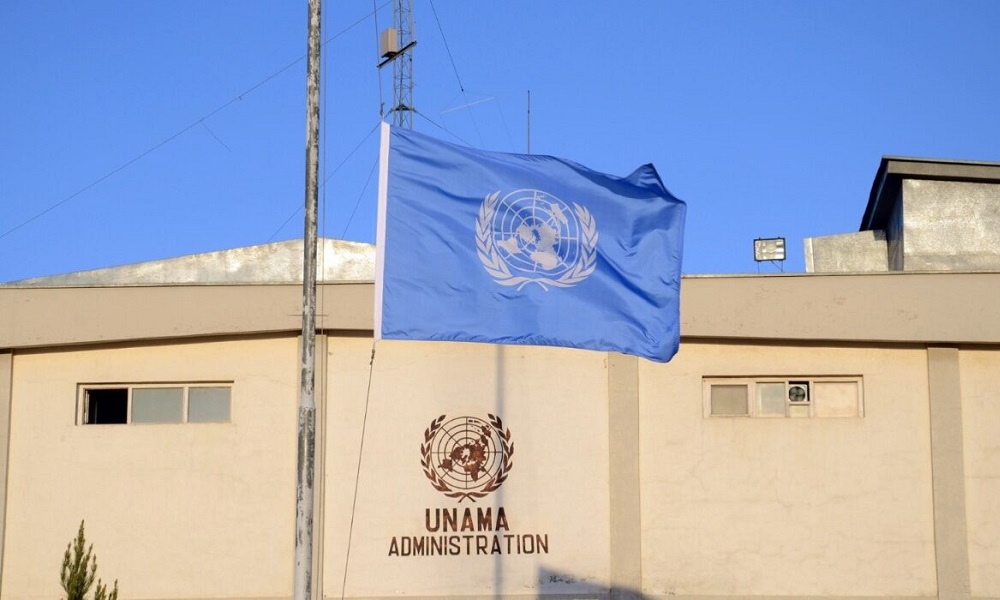
The United Nations Assistance Mission in Afghanistan (UNAMA), in its latest report on the human rights situation in Afghanistan, stated that 14 members of the former Afghan government forces were killed in the last three months of 2025.
The report noted that during this period, there were 28 cases of arbitrary arrest and detention, and at least seven cases of torture and ill-treatment targeting officials and personnel of the former Afghan government.
According to the report, some of the officials and forces who had recently returned to Afghanistan from Iran and Pakistan were among those subjected to extrajudicial killings, arbitrary arrests, and detentions.
The report also highlighted restrictions on women’s work and movement, executions and flogging of individuals, and disruptions to internet and telecommunications services.
-

 Sport5 days ago
Sport5 days agoHosts and heavyweights advance as AFC Futsal Asian Cup reaches semifinals
-

 Latest News4 days ago
Latest News4 days agoTerrorist threat in Afghanistan must be taken seriously, China tells UNSC
-

 Latest News5 days ago
Latest News5 days agoUzbekistan, Pakistan advance Trans-Afghan railway project
-

 Latest News2 days ago
Latest News2 days agoAfghanistan to grant one- to ten-year residency to foreign investors
-

 Sport5 days ago
Sport5 days agoWinter Olympics finally underway, ATN to broadcast exclusively across Afghanistan
-

 Sport5 days ago
Sport5 days agoAfghanistan beat West Indies in final T20 WC warm-up match
-

 Sport3 days ago
Sport3 days agoIndonesia shock Japan to reach historic AFC Futsal Asian Cup final
-
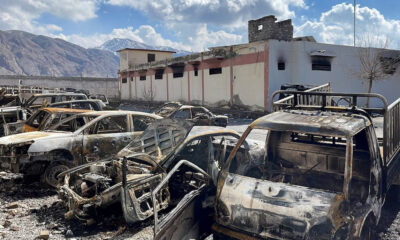
 Regional5 days ago
Regional5 days agoPakistan sends helicopters, drones to end desert standoff; 58 dead




